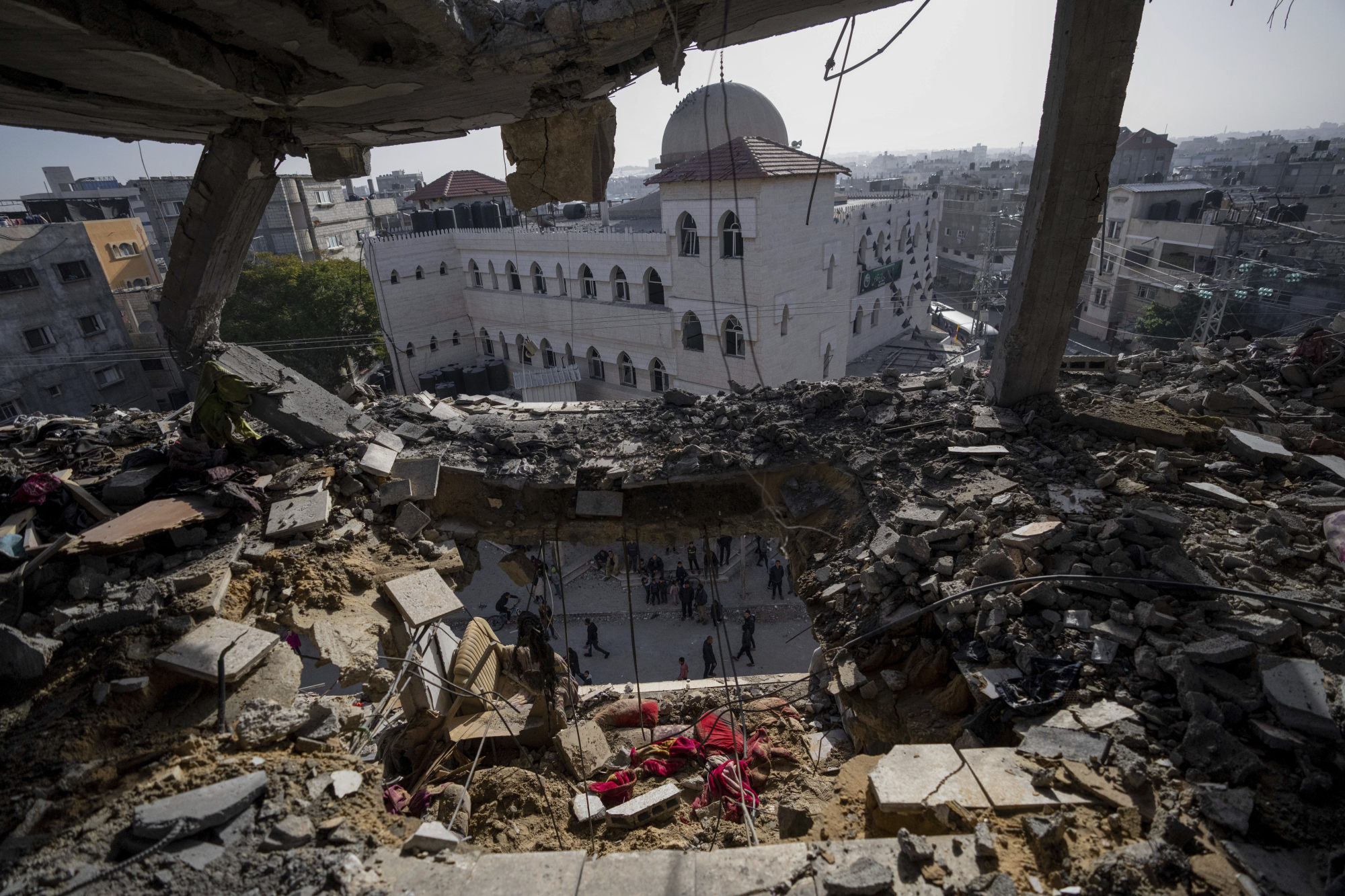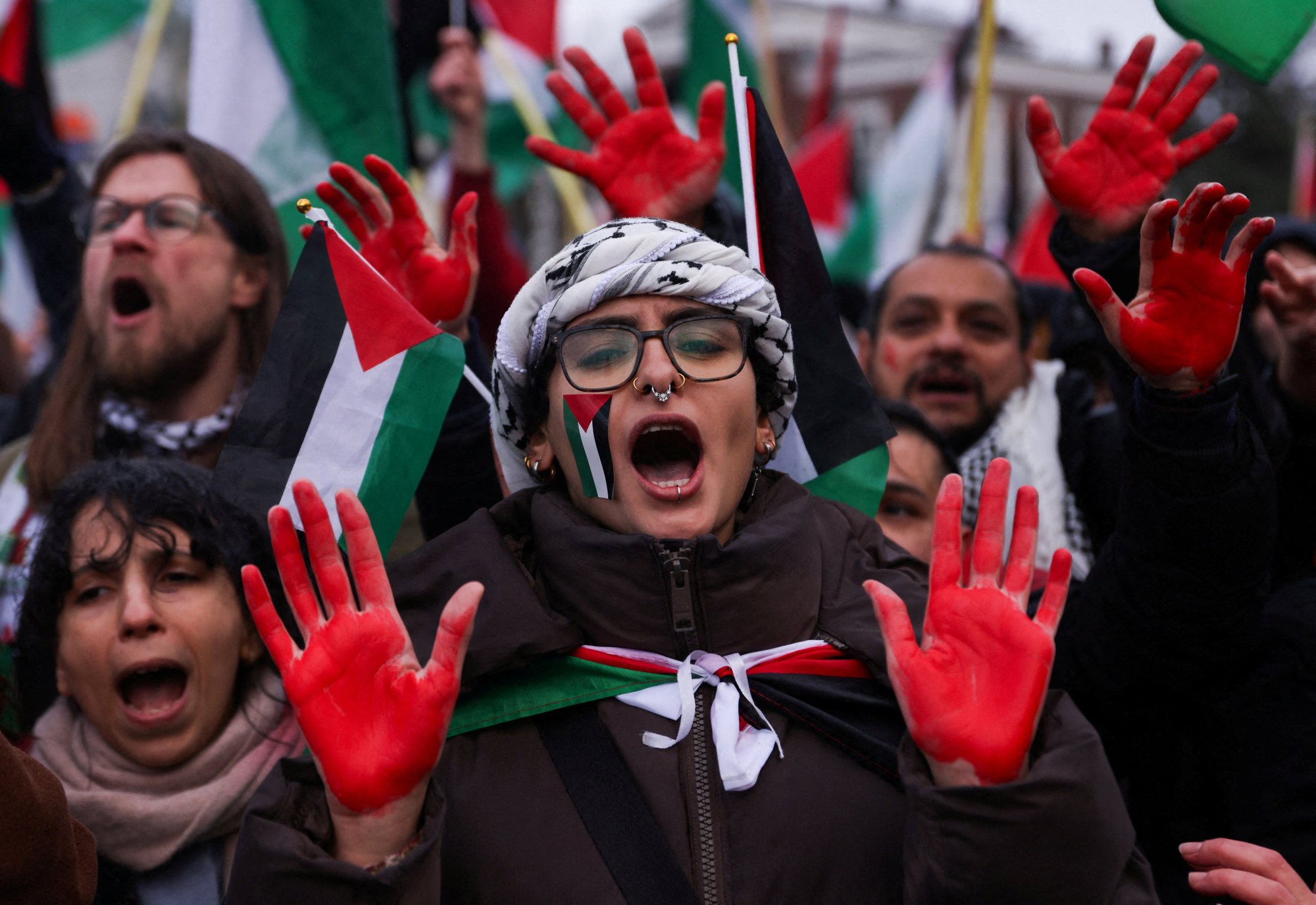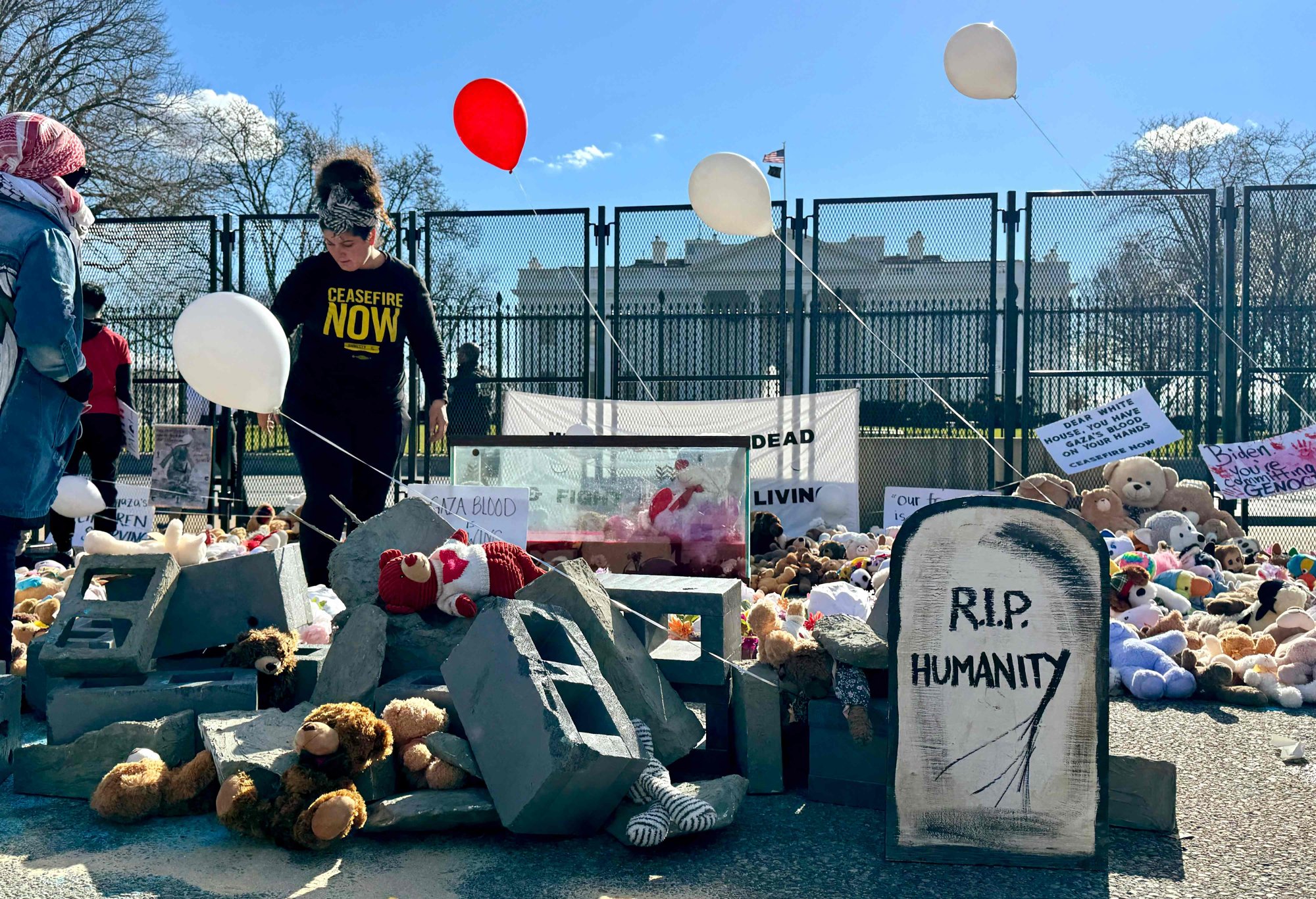Hamas also seized about 250 hostages, 132 of whom Israel says remain in Gaza, including at least 25 believed to have been killed.

Israel vowed to destroy Gaza’s Palestinian Islamist rulers and launched a relentless bombardment that has killed at least 23,843 people, mostly women and children, according to the latest toll from the territory’s health ministry.
An Israeli siege has sparked acute shortages of food, water, medicine and fuel in Gaza, where the health system is collapsing.
Visiting the devastated Gaza Strip, the head of the UN agency for Palestinian refugees, Philippe Lazzarini, said “the massive death, destruction, displacement, hunger, loss and grief of the last 100 days are staining our shared humanity”.
An entire generation of children in Gaza were being “traumatised”, diseases were spreading and the clock is “ticking fast towards famine”, he warned.
What is the genocide case against Israel at top UN court?
What is the genocide case against Israel at top UN court?
The Hague-based International Court of Justice this week heard arguments in a case launched by South Africa – and welcomed by Gazans – accusing Israel of breaching the UN Genocide Convention.
The case seeks a halt to the military campaign, which Israel stressed to the court was in self-defence and not aimed at Palestinian residents.
But Netanyahu insisted no court or military foe could stop Israel from achieving its aim of destroying Hamas.
“No one will stop us – not The Hague, not the Axis of Evil and no one else,” he told a televised press conference, referring to the Iran-aligned “axis of resistance” groups in Lebanon, Syria, Iraq and Yemen.

“It is possible and necessary to continue until victory and we will do it,” he added, saying most Hamas battalions in Gaza had been “eliminated”.
Israel’s army chief Herzi Halevi said the war in Gaza was a struggle “for our right to live here in safety”, saying the October 7 attacks would never be forgotten.
Health officials in Gaza said that Israeli strikes killed at least 60 people in the besieged territory, 99 days into the war.
Nimma al-Akhras, 80, described the strike that destroyed her home.
“It was very powerful,” she said. “We started to scream and I couldn’t move but someone pulled me out and put me on a cart.”
Al Jazeera rejects Israel army claims slain journalists were ‘terror operatives’
Al Jazeera rejects Israel army claims slain journalists were ‘terror operatives’
The Israeli army said its forces had struck dozens of rocket launchers that were “ready to be used” in central Gaza, and eliminated four “terrorists” in air strikes on Khan Younis, Gaza’s main southern city.
The military also reported that its engineers had destroyed a Hamas “command centre” and weapons found there, after a raid in central Gaza.
At Rafah’s Al-Najjar hospital, mourners gathered and prayed around the bodies of slain relatives.
One man stroked the body of a child, wrapped up like a white parcel. He kissed it, then placed it gently among others.

Another man, Bassem Araf, held up a photo of another child.
“She died hungry with bread in her hand. We tried to remove the bread from her hand but it was held tight,” Araf said. “This is the resistance they are targeting in Gaza, just children.”
An AFP reporter in Rafah said telecommunications had been partially restored, a day after Gaza’s main operator Paltel reported the latest outage. Paltel did not immediately confirm the service restoration.
Winter rains have exacerbated the dire humanitarian situation in Gaza, where the UN estimates 1.9 million – nearly 85 per cent of the population – have been displaced.
Blinken urges Israel to engage with region on post-war Gaza
Blinken urges Israel to engage with region on post-war Gaza
Many have sought shelter in Rafah and other southern areas where the health ministry says there isn’t the infrastructure to support them.
“The infrastructure, services and healthcare in Rafah are fragile and cannot bear the needs of 1.3 million citizens and displaced people,” its spokesman said.
Gaza’s health ministry spokesman accused Israel of “deliberately targeting hospitals … to put them out of service”, warning of “devastating repercussions”.
Hospitals, protected under international humanitarian law, have repeatedly been hit by Israeli strikes in Gaza since the war erupted.

The Israeli military accuses Hamas of operating command centres in tunnels under hospitals, a charge the Islamist group denies.
Fewer than half of Gaza’s hospitals are functioning and those only partly, the World Health Organization says.
In Israel, concern grew for hostages held in Gaza as they approach their 100th day in captivity, with Netanyahu under domestic pressure to get them home.
Relatives unveiled a replica of the Gaza tunnels where the hostages are believed to be held to mark the grim anniversary in Tel Aviv.
“That’s the only tunnel in this story that has a light in the end of it,” said Inbar Goldstein, who had several relatives released during a week-long truce in November, and several others killed in the initial attack.

